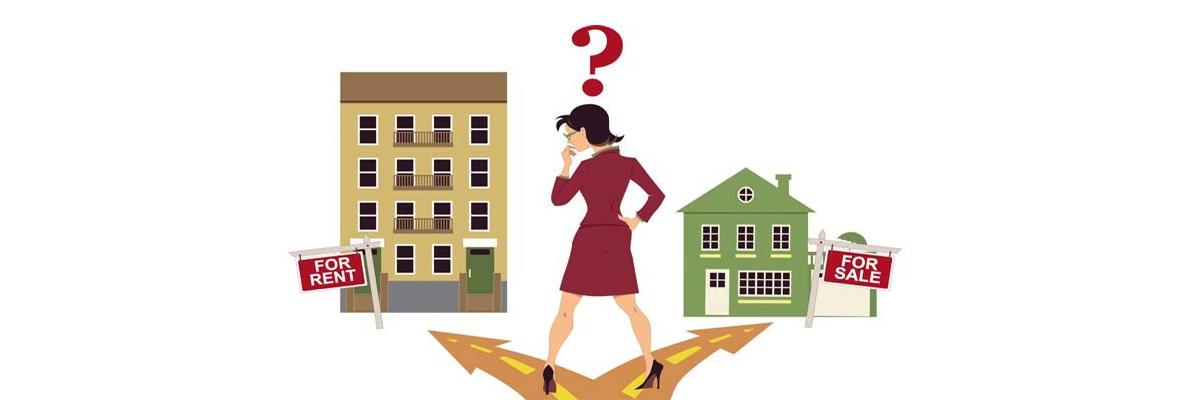Live
- CM Revanth Reddy to Hold Review Meeting with Senior Officials Today
- Pawan Kalyan's Visit to Penamaluru Constituency Today
- Kadapa Municipal Corporation Meeting: Heavy Police Deployment and Section 144 Imposed
- Mandhana, Renuka blow away Windies in first ODI
- Heavy rush for Bhavani Deeksha Viramana continues
- Steps taken to ensure accommodation to common devotees says TTD EO J Syamala Rao
- CRDA invites tenders for ‘Happy Nest’ township
- PD Act invoked against red sanders smuggler
- Meghalaya scrape past Goa to secure QF berth
- India lift inaugural U19 Women’s Asia Cup
Just In

One of the most enduring and emotional investment for young couples is of purchasing a new house Its an inbuilt Indian psyche that the posteducation life cycle of an adult is a sequence of job, marriage, house, kids and retirement Its not just the order of timelines but also of priority in most cases
One of the most enduring and emotional investment for young couples is of purchasing a new house. It’s an in-built Indian psyche that the post-education life cycle of an adult is a sequence of job, marriage, house, kids and retirement. It’s not just the order of timelines but also of priority in most cases.
I remember a few years back, still unmarried but had good disposable income arguing with my parents that I didn’t want to buy a house. They were perplexed as I reasoned to them that I’d prefer to stay near to my workplace, which keeps changing once at least in a few years if not months.
My priority is to spend less time commuting between the home and office while wanting to have a decent place to stay wherever I chose to move. So, affordability would never be an issue and opted for places that suited my taste. I thanked for this decision post-marriage as my spouse’s workplace turned out to be elsewhere and we moved to a place which is equally comfortable for commute for both of us.
I recollect my father asking me to opt for an EMI instead of the rent paid and also assured me that he would pump-in money in case of any shortfall. This he said would create a physical asset while saving taxes and rent. In retrospection, I feel good about my decision as it saved both, lots of pain despite being subjected to relocation once in a few years, most times at our choice and a very few times due to the landlord.
I realise this thought is due to the almost constant workplace (location) which makes it easy for them to take a decision. But I dread the thought of us travelling far off distances in the heavy traffic and spending too little time with our kid back at home.
The sense of achievement and security of owing a house is probably no match to many of the other financial wealth models but in many cases decision for a rented house would turn a practical one. Also, a case in point is when one would want to sell it and mayn’t end up getting a return on it or the valuation turning negative to the original cost.
The biggest hurdle in a house is its illiquidity and also could anchor you not to take any bold decisions of job switching or entrepreneurship due to the home loan hurdle or locational disadvantage.
Another misinterpreted perspective is to consider consumption to an investment i.e. when an individual is purchasing a house to stay, it shouldn’t be considered as an asset that is nullified for a future goal. This is again a traditional way of looking at using the house to fund future child education needs. As long as the rental cost could be replaced with a house loan EMI, opting for a house makes sense. But, to own a house in or near an up-market location would strain the entire finances of an individual. So, a judicious decision has to be taken when purchasing a house.
The better way to solve this is by checking if the current cashflows have enough buffer to accommodate the other major financial goals like children needs and retirement. Also, any decision to purchase of house shouldn’t catapult the existing cashflows and create stress on the personal finances. Priority of construction of house shouldn’t supersede the other important goals.
Also, not always one ends up with great returns and people usually get enamored by looking at the absolute numbers when they look at the valuations. But, in many cases, the returns translate to about 8-10 per cent annualised while the rental yield doesn’t exceed 4 per cent.
There’re costs of maintenance and upkeep or tenancy management that adds up to the cost of the ownership which sometimes we discount. Of course, I’m not against purchasing a house but one should be aware of how they prioritise and address this need.
(The author is a co-founder of “Wealocity”, a wealth management firm, and could be reached at [email protected])

© 2024 Hyderabad Media House Limited/The Hans India. All rights reserved. Powered by hocalwire.com







